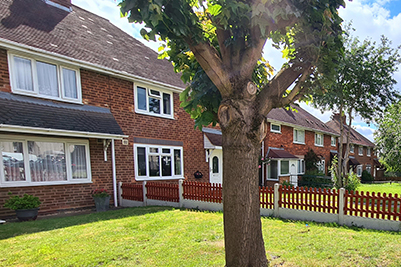The Knowing our Homes survey is part of a programme of work developed by the NHF in response to the Better Social Housing Review which aims to establish a shared, standardised approach for gathering and using information about the condition of social homes and about the residents who live in them. This should also help social landlords to meet new requirements emerging through the Consumer Standards which set higher expectations for how landlords gather and use information about their homes and their residents.
Although the Better Social Housing Review was initially focused on the housing association sector, the local authority sector has committed to support the work emerging from the review to make sure there is a shared approach across the whole social housing sector. The Local Government Association (LGA), Association of Retained Council Housing (ARCH), National Federation of ALMOs (NFA), and Councils with ALMOs Group (CWAG) are all working together to achieve this and make sure the whole council housing sector is represented.
A survey was sent out to stock retaining local authorities, and local authorities with ALMOs in October 2023. This is the first stage of the work which identifies how local authorities are currently gathering and using data. 49 local authorities responded to the survey (around 30 per cent of local authorities with housing stock), managing around 599,000 social and affordable local authority homes across England (around 38 per cent of the total stock).
Snapshot of Survey Findings
- Three quarters of respondents to our survey have made significant changes to the way they monitor and work to improve the condition of the homes they manage within the last year. This includes, for example:
- Reviewing damp and mould policies and procedures, implementing training, creating new teams.
- Changing stock condition programmes, for example moving to a 100% survey, reducing the length of the rolling survey or undertaking a full assessment of stock condition.
- Reviewing and developing asset management strategies.
- Investing in new asset management or property information management systems. Developing processes to cross-reference data sources (e.g. property archetype, repair and cases of damp and mould) to better direct resources and identify issues.
- Reviewing processes for identifying stock condition between surveys, for example adding requirements to the gas servicing contract to identify property condition.
- Increasing staffing resources for quality assurance, stock condition and data management.
- Accessing funding for thermal improvement/ decarbonisation work to support quality of homes.
- Introducing tenancy audits, or changes in frequency or type of audit.
- The majority of respondent have – or are moving towards – a rolling stock condition survey where they survey 100 per cent of their homes. This will support them to the meet the requirements within the Regulator’s Consumer Standards to have ‘an accurate, up to date and evidenced understanding of the condition of their homes that reliably informs the provision of good quality, well maintained and safe homes for tenants.’ The information gathered as part of these surveys differs across respondents, but around 40 per cent gather information on energy efficiency of properties (e.g. RdSAP).
- The majority of respondents report having a process for proactively checking the condition of homes between stock condition surveys. This includes, for example, through tenancy checks or audits, and asking staff who visit the home to report issues. One of the key areas of work for many is making sure IT systems can effectively record all the information about a home and the people who live in it, and that data quality is good. Around a third of respondents would recommend the IT or data systems they would use, suggesting that there is work to be done in this area.
- Having a good knowledge of the people who live in homes is a key requirement in the new Consumer Standards; to make sure that services are tailored and equitably delivered. Nearly all respondents in our survey collect, store and retain data about tenants. This includes, for example, information on household make-up, relevant health issues or disabilities, and communication needs or preferences. Nine out of 10 respondents actively update the information they hold on tenants, for example after a repair or during a tenancy audit. Members are actively working on the processes that they use to make sure they can demonstrate they are equitably delivering services.
- The collection of data on tenants is an area that members are working on, and where good practice sharing would be beneficial; particularly thinking about GDPR principles, how (and what) data is stored and kept up-to-date, and how it is used. We will continue to work with the National Housing Federation and their members to share good practice in this area.


